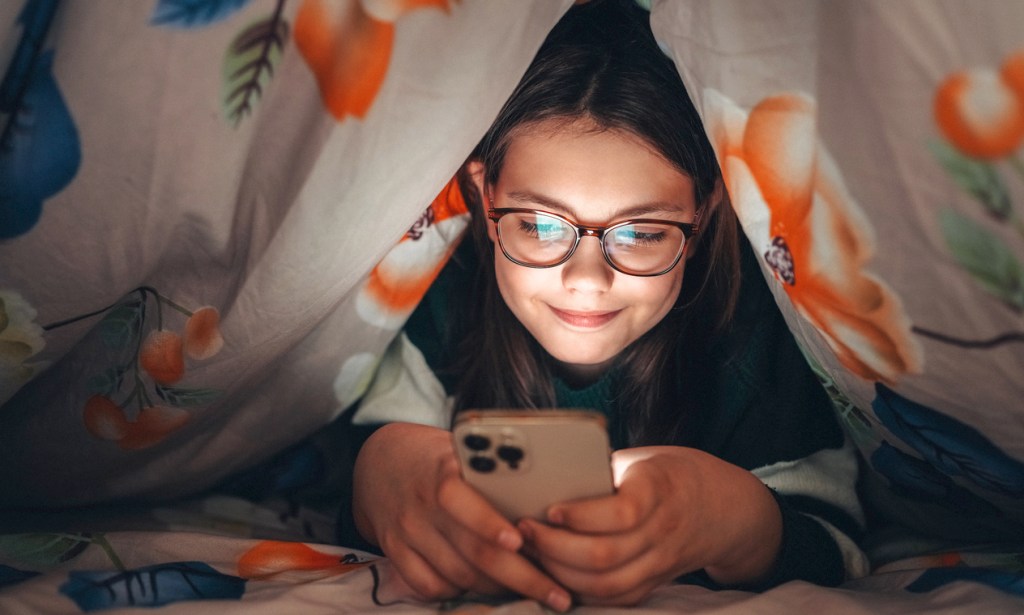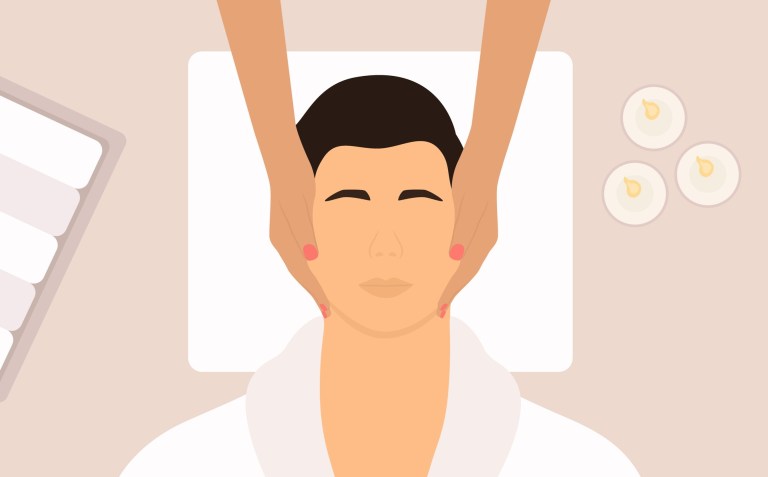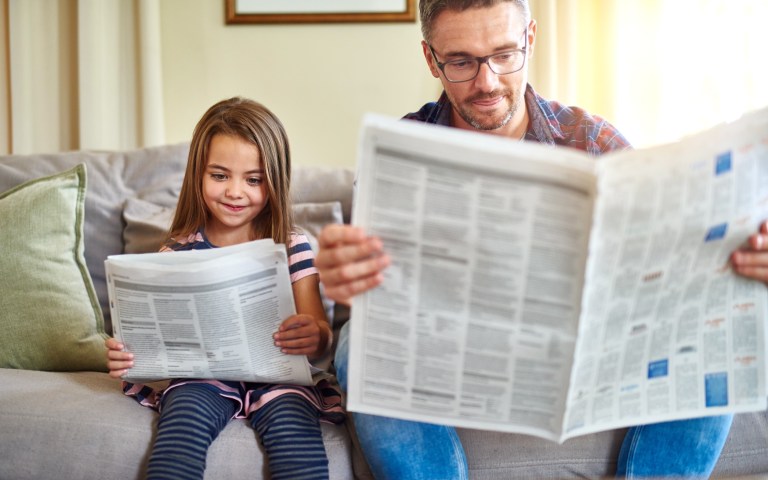Screens have become more prevalent in our lives than ever before and using them is a normal part of most families’ day-to-day routines. While excessive screen time continues to be an issue, another emerging problem, especially for the younger members of our society, is the use of digital devices before bedtime.
In a study published July 22 in the Journal of Adolescent Health, researchers highlighted the correlation between bedtime screen usage and poor sleep habits of tweens. The three-year study followed 9,398 U.S. early adolescents, ages 11 and 12, with participants reporting the type of screen activity they engaged in and how much time was spent on each in the run-up before bedtime each evening.
After one year, researchers assessed the sleeping habits of the adolescents, including times they went to bed, fell asleep, woke up, and if they awoke during the night. While an encouraging 54.9% of them reported turning their phones off when they went to sleep, 16.2% reported waking up upon receipt of a text, call, or email, and 19.3% said they used their device during the night if they woke up.
The findings were clear: The use of any type of screen was associated with lower self-reported sleep duration and an increase in disorders of initiating and maintaining sleep. “Talking on the phone or texting, playing music, and spending time on social media before going to sleep were prospectively associated with overall sleep disturbance,” the study reads.
Adolescents who left their phone ringers on, even on vibrate or silent mode, experienced more sleep disturbances and shorter sleep duration than the participants who fully turned off their devices. Additionally, those who woke up and used their screens during the night were more likely to experience sleep disturbance and shorter sleep duration.
RELATED: Cracking Jokes at the Dinner Table? Keep It Up, Parenting Study Suggests
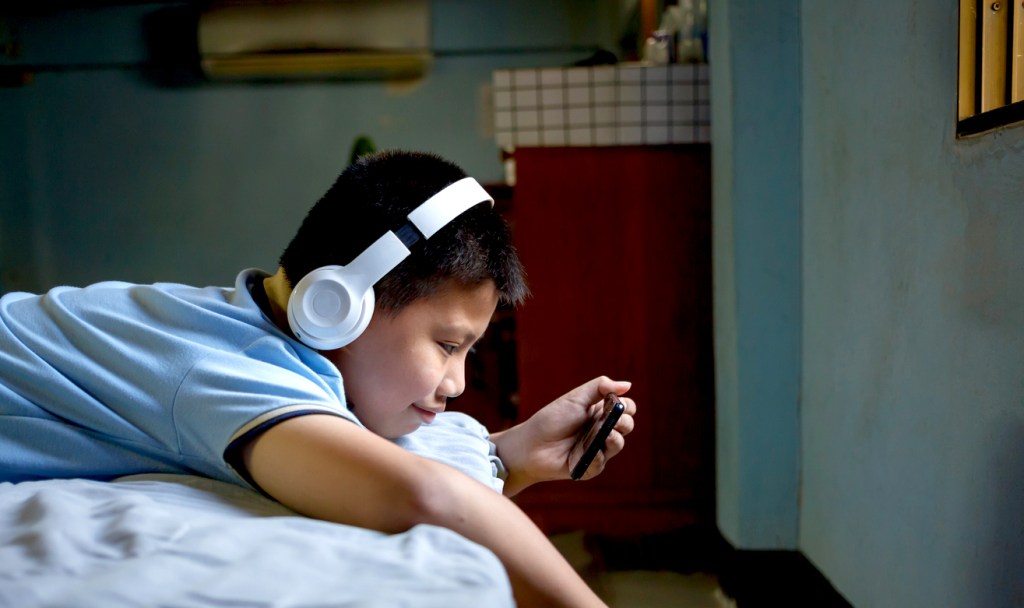
“Ensuring adolescents get enough sleep is vital, as it supports their physical and mental growth and development,” explained lead researcher Dr. Jason M. Nagata in a press release. “Our research found that leaving notifications on, even in silent mode, leads to less sleep compared to turning the phone off completely or keeping it outside the bedroom.”
With technology and screens inevitably playing a big role in the future lives of children, parents have an important responsibility in helping them set healthy boundaries with devices. In another study released this year, also led by Nagata, the research provided parents with actionable takeaways: keep track of their child’s screen use and set time limits on it, don’t allow devices at bedtime or the dining table, and, most importantly, parents should set the tone by modeling healthy screen habits.
“One of the biggest predictors of adolescents’ screen use is their parents’ screen use,” said Nagata, per The Washington Post. “It’s especially important that parents follow their own rules and practice what they preach because even if they think their kids aren’t watching them, they really are.”
Families that limit screen time together, make a difference together, as seen in a recent clinical trial of 181 kids in Denmark. Over a two-week period, half of the family groups in the study reduced their leisure screen time to three hours per week and the other half kept their regular screen usage habits. The results showed that the implementation of leisure screen limits was associated with improved mental health in the youth, specifically in “improvements in internalizing symptoms (emotional symptoms and peer problems) and prosocial behavior,” per the study.
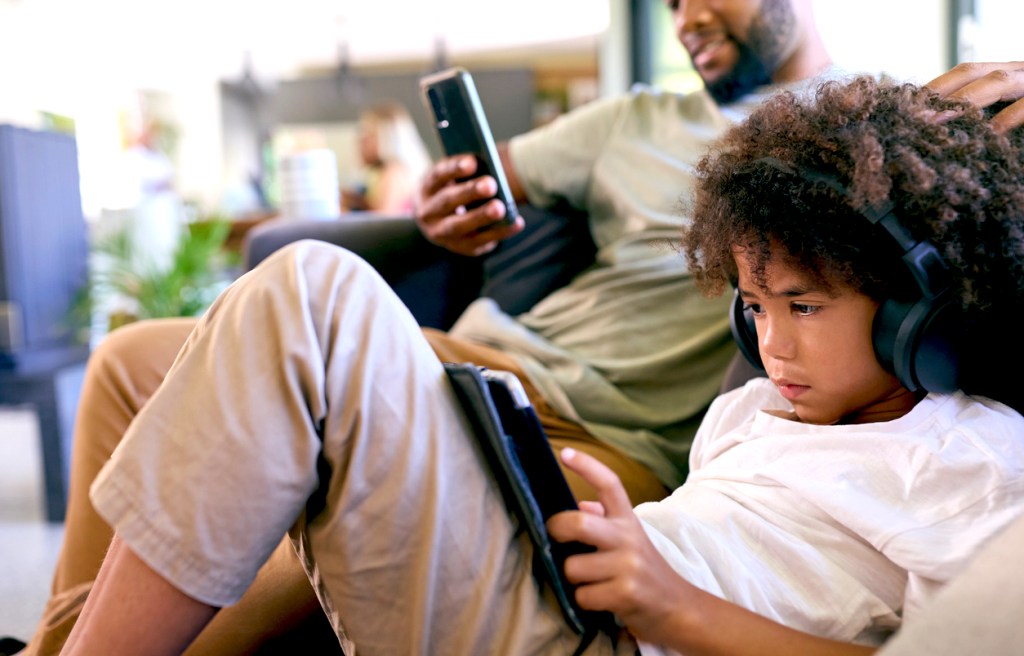
RELATED: How Do You Set Kids Up for Economic Upward Mobility? Parental Employment Is a Key Factor
Researchers pointed out that the families involved in the study were likely highly motivated to limit screen time each week, which could limit the generalizability of the results. However, it did show that family involvement is important in order to achieve the positive outcomes.
Nagata believes that not only do our children benefit from turning off those screens at bedtime, but grownups do, too. “After doing these studies, I have changed my habits,” he told NPR. “I used to have my phone off, but in the room. But now I try to put it outside the bedroom, and it has actually been more effective for me as well.”
